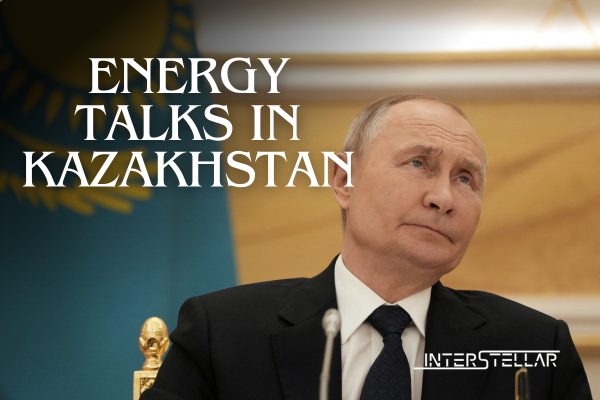Putin Visits Kazakhstan: Energy Cooperation and Strategic Talks
Russian President Vladimir Putin visits Kazakhstan on to strengthen ties in energy and industry. Discussions focused on easing trade disputes, particularly over agricultural goods, and enhancing cooperation in key sectors. Kazakhstan exports most of its oil through Russia but is actively seeking alternative routes.
Kazakhstan’s Balancing Act with Russia
While Kazakhstan distances itself from Russia’s war in Ukraine, it remains reliant on Russia for oil exports, food, electricity, and other goods. Over 80% of Kazakhstan’s oil reaches international markets via Russian routes.
In an article titled “Russia – Kazakhstan: A Union Demanded by Life and Looking to the Future” published on Tuesday, Putin emphasised constructive collaboration in the oil and gas sector. However, Kazakhstan’s energy minister recently stated that the country could significantly boost crude oil exports via Turkey’s Ceyhan port, potentially reducing its dependence on Russian transit.
Key Agreements and Joint Initiatives
Although no formal protocol was announced after their meeting, the leaders discussed various projects. These included plans to increase Russian natural gas transit through Kazakhstan to Uzbekistan and Kyrgyzstan, reflecting Russia’s shift from European energy markets.
They also addressed joint ventures in hydroelectric power, car tyres, and fertilisers. Kremlin foreign policy aide Yuri Ushakov had earlier mentioned a protocol to extend an agreement on Russian oil supplies to Kazakhstan, though specifics were not disclosed.
Nuclear Power and Agricultural Trade Disputes
Putin highlighted Russia’s readiness to support large-scale nuclear projects in Kazakhstan. This aligns with Kazakhstan’s recent vote to construct its first nuclear power plant, a move supported by President Kassym-Jomart Tokayev but criticised by some Kazakhs wary of Russia’s involvement.
Agricultural trade was another focal point. Tokayev raised concerns over Russia’s ban on Kazakh grain, fruit, and other farm products, imposed after Kazakhstan restricted Russian wheat imports in August. He stressed that the two countries should cooperate rather than compete within the Eurasian Economic Union and foreign markets.
Navigating Geopolitical Tensions
Kazakhstan has maintained a delicate balance between Russia and the West. While it supports initiatives like promoting the Russian language across former Soviet states, it has refused to join BRICS and pledged to comply with Western sanctions on Russia. Nonetheless, some Kazakh companies have faced scrutiny for bypassing these sanctions.
Security measures in Astana were stringent during the visit, with areas cordoned off and military aircraft patrolling the skies.
With inputs from Reuters





